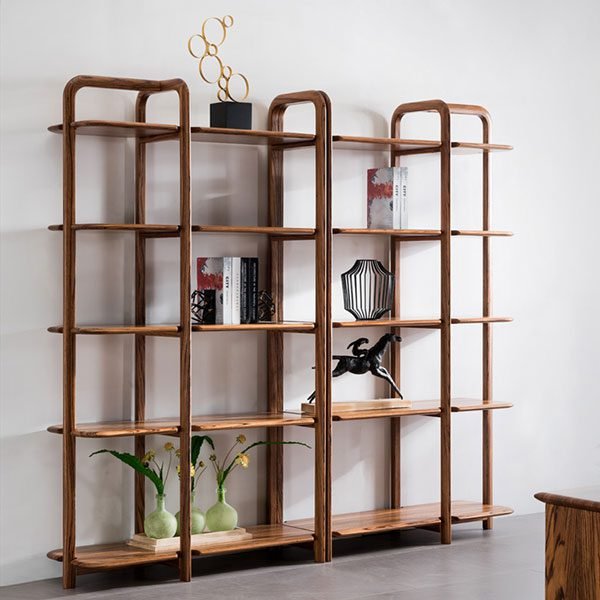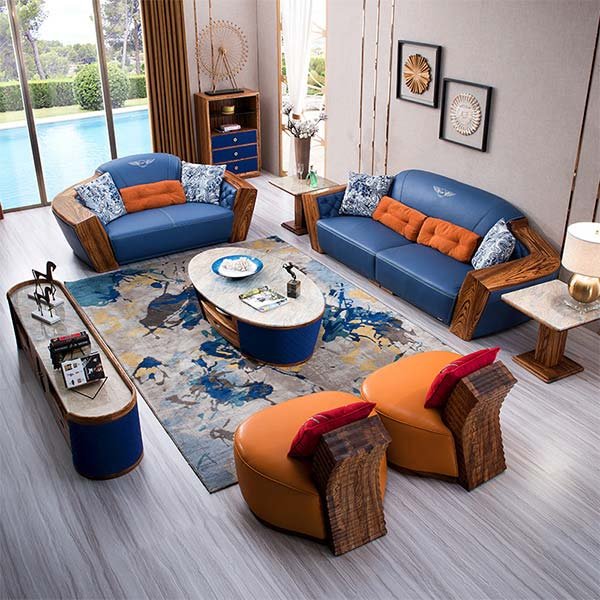“Shape your style with the perfect coffee table.”
Round coffee tables: Pros and cons
Round coffee tables have become increasingly popular in recent years, with many homeowners opting for this shape over the traditional rectangular design. But is a round coffee table really the best choice for your living room? In this article, we will explore the pros and cons of round coffee tables to help you make an informed decision.
One of the main advantages of round coffee tables is their ability to create a sense of flow and harmony in a room. The absence of sharp corners makes them a great choice for small spaces, as they can easily be maneuvered around without causing any obstructions. Additionally, round coffee tables can soften the overall look of a room, adding a touch of elegance and sophistication.
Another benefit of round coffee tables is their versatility. Due to their shape, they can easily fit into any corner of a room, making them a great option for those who have limited space. They can also be used as a focal point in a larger room, drawing attention and adding visual interest. Round coffee tables are available in a wide range of styles and materials, allowing you to find the perfect one to complement your existing decor.
However, round coffee tables do have some drawbacks that should be considered. One of the main disadvantages is their limited surface area. Unlike rectangular coffee tables, which often come with additional storage options such as drawers or shelves, round coffee tables typically only offer a flat surface. This can be problematic if you need extra space to store remote controls, magazines, or other items.
Another potential drawback of round coffee tables is their stability. Due to their curved shape, they may not be as sturdy as rectangular coffee tables, especially if they are made from lightweight materials. This can be a concern if you have young children or pets who may accidentally bump into the table and cause it to tip over.
In conclusion, round coffee tables offer several advantages, including their ability to create a sense of flow and harmony in a room, their versatility, and their elegant appearance. However, they also have some drawbacks, such as their limited surface area and potentially less stability compared to rectangular coffee tables. Ultimately, the best coffee table shape for your living room will depend on your personal preferences and the specific needs of your space. Consider the pros and cons of each shape before making your decision, and choose a coffee table that not only looks great but also meets your functional requirements.
Rectangular coffee tables: Pros and cons
Rectangular coffee tables: Pros and cons
When it comes to choosing a coffee table for your living room, the shape is an important factor to consider. Rectangular coffee tables are a popular choice for many homeowners due to their versatility and functionality. In this article, we will explore the pros and cons of rectangular coffee tables to help you make an informed decision.
One of the main advantages of rectangular coffee tables is their ability to fit into different spaces. Whether you have a small or large living room, a rectangular coffee table can easily be adjusted to fit the available space. This makes it a practical choice for those who have limited room to work with.
Another benefit of rectangular coffee tables is their ability to provide ample surface area. With a longer and wider tabletop, you have more space to place your coffee mugs, books, and other items. This is especially useful if you enjoy entertaining guests or if you have a large family.
Additionally, rectangular coffee tables often come with storage options. Many models feature drawers or shelves underneath the tabletop, allowing you to keep your living room organized and clutter-free. This is particularly advantageous for those who have limited storage space in their homes.
On the other hand, there are some drawbacks to consider when it comes to rectangular coffee tables. One of the main disadvantages is their sharp corners. If you have young children or pets, these sharp corners can pose a safety hazard. However, this can be easily mitigated by choosing a coffee table with rounded edges or by using corner protectors.
Another potential drawback of rectangular coffee tables is their lack of visual interest. Compared to round or oval coffee tables, rectangular ones can sometimes appear too linear and plain. However, this can be easily remedied by choosing a coffee table with interesting design elements or by adding decorative items such as a centerpiece or a tray.
In terms of style, rectangular coffee tables are often associated with a more traditional or formal aesthetic. If you prefer a modern or contemporary look, a round or oval coffee table might be a better choice. However, rectangular coffee tables can still be incorporated into various design styles by choosing the right materials, finishes, and accessories.
In conclusion, rectangular coffee tables offer several advantages such as versatility, ample surface area, and storage options. However, they also have some drawbacks including sharp corners and a potentially plain appearance. Ultimately, the best coffee table shape for your living room will depend on your personal preferences, the available space, and the overall style of your home. Consider these pros and cons carefully before making your decision, and you will be able to choose a coffee table that perfectly suits your needs and enhances the aesthetic of your living room.
Comparing the functionality and aesthetics of round and rectangular coffee tables
Comparing the functionality and aesthetics of round and rectangular coffee tables
When it comes to choosing a coffee table for your living room, there are many factors to consider. One of the most important decisions you’ll need to make is the shape of the table. Round and rectangular coffee tables are the most common options, each with its own unique advantages and disadvantages. In this article, we will compare the functionality and aesthetics of these two shapes to help you make an informed decision.
Functionality is a key consideration when choosing a coffee table. Rectangular tables are known for their practicality and versatility. Their straight edges make them ideal for placing against walls or in corners, maximizing space utilization. Rectangular tables also provide ample surface area, making them great for hosting gatherings or displaying decorative items. Additionally, their elongated shape allows for easy placement of magazines, books, and other items.
On the other hand, round coffee tables offer a more intimate and cozy feel. Their lack of sharp edges makes them a safer option, especially for households with young children. Round tables also promote better flow and movement in a room, as they don’t obstruct the natural path of traffic. They are particularly suitable for smaller spaces, as their circular shape creates an illusion of more space. However, it’s important to note that round tables may have less surface area compared to rectangular ones, limiting their functionality for larger gatherings or storage purposes.
Moving on to aesthetics, both round and rectangular coffee tables have their own unique appeal. Rectangular tables are often associated with a more traditional or formal look. Their clean lines and symmetrical shape make them a popular choice for classic or contemporary interior designs. Rectangular tables also pair well with sofas and other furniture pieces, creating a cohesive and balanced look in the room.
On the other hand, round coffee tables offer a softer and more organic aesthetic. Their curved edges and circular shape add a touch of elegance and fluidity to any space. Round tables are often favored in more eclectic or bohemian interior styles, as they can create a focal point and add visual interest to a room. They also work well in open-concept spaces, where their rounded shape can help break up the linear lines of the surrounding furniture.
In conclusion, the choice between a round and rectangular coffee table ultimately depends on your personal preferences and the specific needs of your space. Rectangular tables offer practicality and versatility, while round tables provide a more intimate and visually appealing option. Consider the functionality and aesthetics you desire, as well as the size and layout of your living room, to make the best decision. Whether you opt for a round or rectangular coffee table, it will undoubtedly become a stylish and functional centerpiece in your home.
Заключение
Заключение: Выбор между круглым и прямоугольным кофейным столиком зависит от индивидуальных предпочтений и потребностей. Круглые столики обычно создают более мягкую и органичную атмосферу, подходят для помещений с ограниченным пространством и безопасны для детей. Прямоугольные столики, с другой стороны, обычно предлагают больше поверхности для размещения предметов и могут быть более практичными для использования в качестве рабочей или обеденной поверхности. В конечном счете, выбор формы кофейного столика должен соответствовать стилю интерьера и функциональным потребностям помещения.



